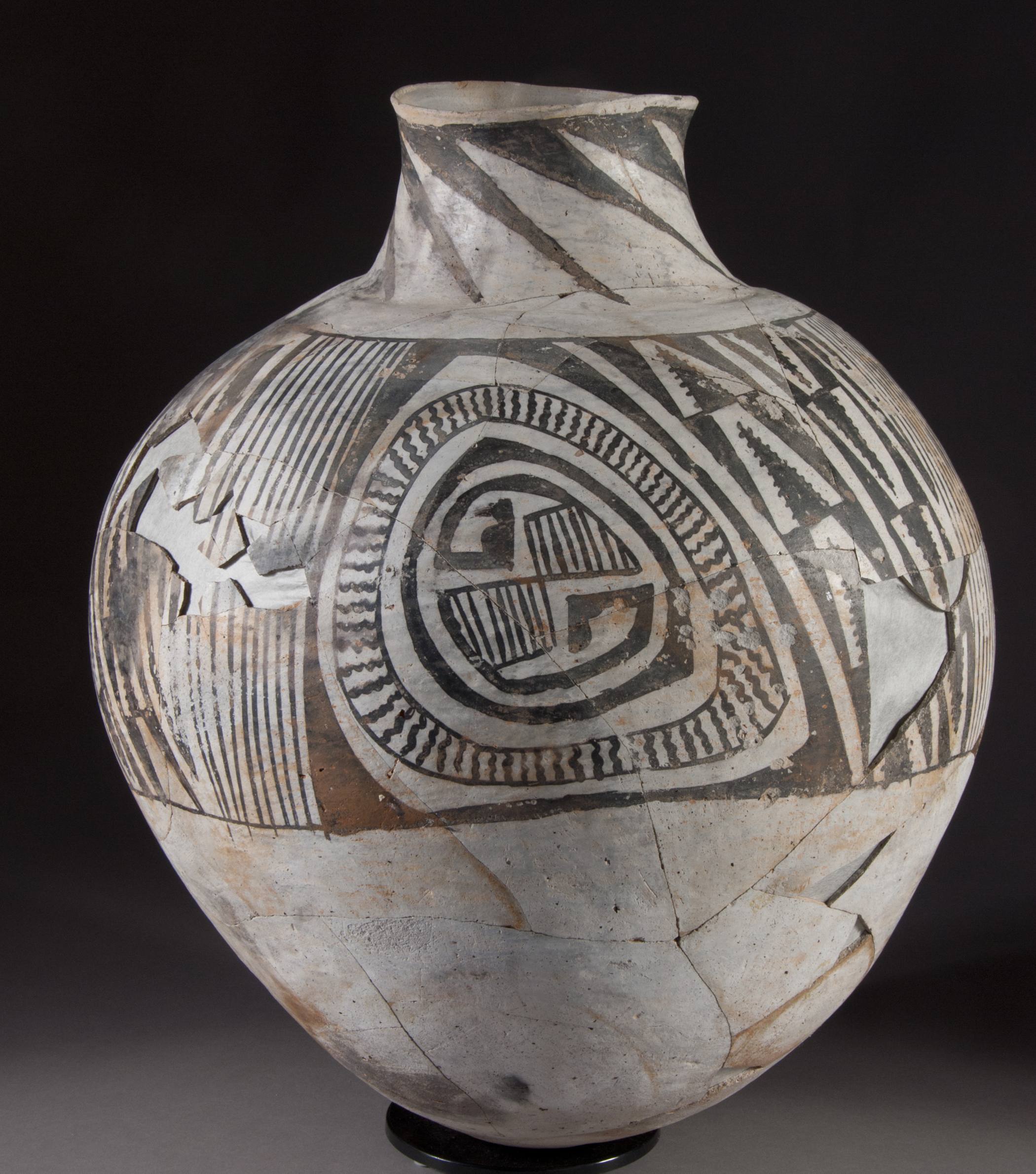
Black Mesa Black-on-white olla. Click the image above to open the Black Mesa Black-on-white gallery.
Black Mesa Black-on-white is type of Tusayan White Ware that is found regularly across the greater part of northeastern Arizona. The olla pictured above is interactive!
Archaeological Culture: Ancestral Puebloan, Kayenta
Date Range: Kayenta Heartland: A.D. 900-1160 (Christenson 1994), Flagstaff Region: A.D. 1025-1140 (per Christian Downum, Northern Arizona University).
Construction: By coiling.
Firing: In a reducing atmosphere.
Core Color: Dark gray to light gray.
Carbon Streak: Common.
Temper: Fairly abundant quartz sand; sometimes conspicuous on undecorated surfaces.
Surface Finish: Interior surface bowls and exterior surface jars are polished and somewhat bumpy.
Surface Color: White, sometimes with a bluish tint.
Forms: Bowls, dippers (rare), jars, and jugs.
Vessel Thickness
Bowls: 3 to 6 mm; jars: 3 to 7.3 mm.
Decoration:
- Paint: Dull black, usually fairly dense, occasionally slightly watery, with slight brownish tint.
- Pigments: Carbon.
- Design: Bowl interiors and jar exteriors only; bowl bottoms undecorated; jar bottoms undecorated; rims unpainted; stripes and wide straight horizontal lines, rarely curved lines, large solid triangles, isosceles and elongated; triangles sometimes in opposed series forming rows of open diamonds; stepped elements rare, solid squares rare, solid areas with large pendent dots; interlocking scrolls. Average width of lines about 7.1 mm.
Comparisons: Sosi Black-on white treatment is bolder and execution more precise; elements more closely massed; pendant dots absent; triangles either isolated or contiguous, infrequent. Puerco Black-on-white and Red Mesa Black-on-white have mineral paint.
Other Names: Black-on-white ware; 2nd ware ; Black Mesa Pueblo II; Deadmans Black-on-white.
Compiled from the following sources:
Christenson, Andrew. (1994) A Test of Mean Ceramic Dating Using Well-Dated Kayenta-Anasazi Sites. Kiva 59(3):297-317.
Colton, Harold S., and Lyndon L. Hargrave. (1937) Handbook of Northern Arizona Pottery Wares. Museum of Northern Arizona Bulletin 11, Flagstaff, Arizona.
Compiled by:
April Peters, Northern Arizona University Anthropology Laboratories.
